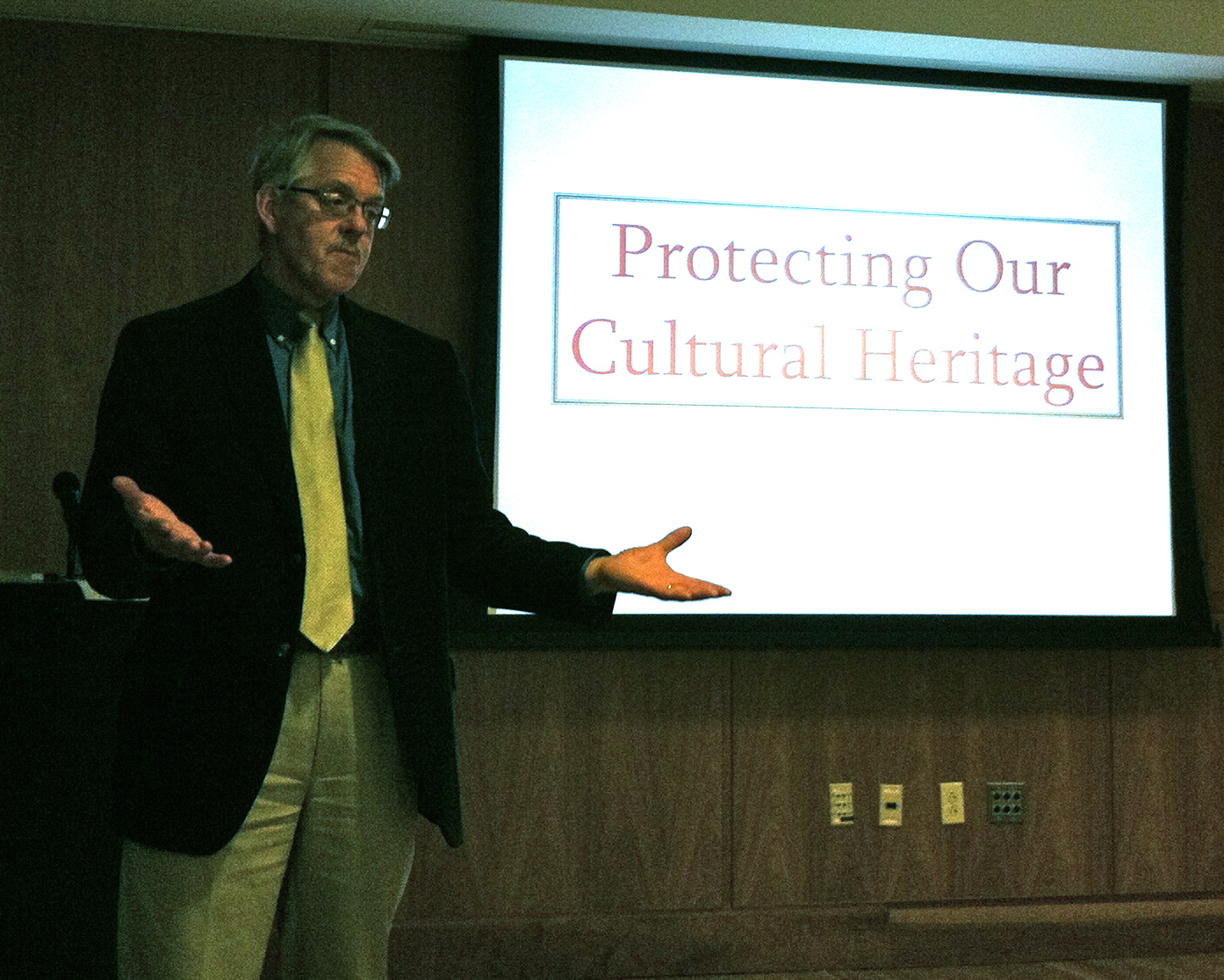Caitlin Birch, SCoSAA Archivist/Secretary (@preserCAITion)
Just a little over a week before Winter Storm Nemo?dumped upwards of two feet of snow on Boston and sent ocean waves surging inland along coastal Massachusetts, former?SAA?President?Gregor Trinkaus-Randall?visited?Simmons College?to talk disaster preparedness for cultural heritage institutions. Trinkaus-Randall, who serves on the?COSTEP MA?(Coordinated Statewide Emergency Preparedness in Massachusetts) Steering Committee, delivered his remarkably well-timed talk to a small but engaged group of?GSLIS?students and SCoSAA members on the evening of January 30 in the Kotzen Meeting Room.
With winds whipping and rain spattering the windows outside, attendees learned all about how disasters can affect cultural heritage institutions in general, and what the COSTEP initiative is accomplishing for Massachusetts repositories, specifically. Lest we find ourselves succumbing to the “But what is the likelihood of something like?that?happening?here?” mentality, Trinkaus-Randall provided plenty of examples to remind us that disaster does not ask permission before striking where we least expect it, and Massachusetts is no exception to the rule. Photos of flood and tornado damage populated his slides, and he even recalled?the bizarre earthquake?that originated in Maine last fall and was felt in classrooms around Simmons.
The overarching message was clear: whether we work in libraries, historical societies, museums, corporate archives, municipal offices, universities, or any of the myriad other information repositories, as cultural heritage custodians we must be prepared for those unwelcome events — natural or man-made — that threaten our holdings. The key to being prepared, as Trinkaus-Randall emphasized, is developing a plan well in advance of the time your repository might need it. He shared valuable COSTEP materials with the audience, including a?chain-of-command model?that delineates the process of reporting and reacting to disasters as they occur. Students were also welcome to explore two of COSTEP’s Cultural Resources Inventory Forms (one for?cultural repositories?and the other for?municipal ones), which institutions can use to describe their important holdings and deposit the information with emergency responders.
Trinkaus-Randall imparted a wealth of knowledge at this SCoSAA event, but perhaps most important to his audience of beginning archivists was his emphasis on what even the least seasoned professionals can do to thwart disaster. Youth or inexperience are no excuse not to get involved, and Trinkaus-Randall urged attendees to discover the disaster plans in place at the repositories for which they work or intern. Unfortunately, he knows that too many institutions will not have these plans developed, and in that case, a golden opportunity exists to start a conversation about disaster preparedness in the archives. It was a conversation worth having among peers in Kotzen, and it is certainly one to consider carrying into your workplace. To learn more, visit?www.mass.gov/mblc/costepma?today.
—-
Listen to Trinkaus-Randall’s full talk here!
